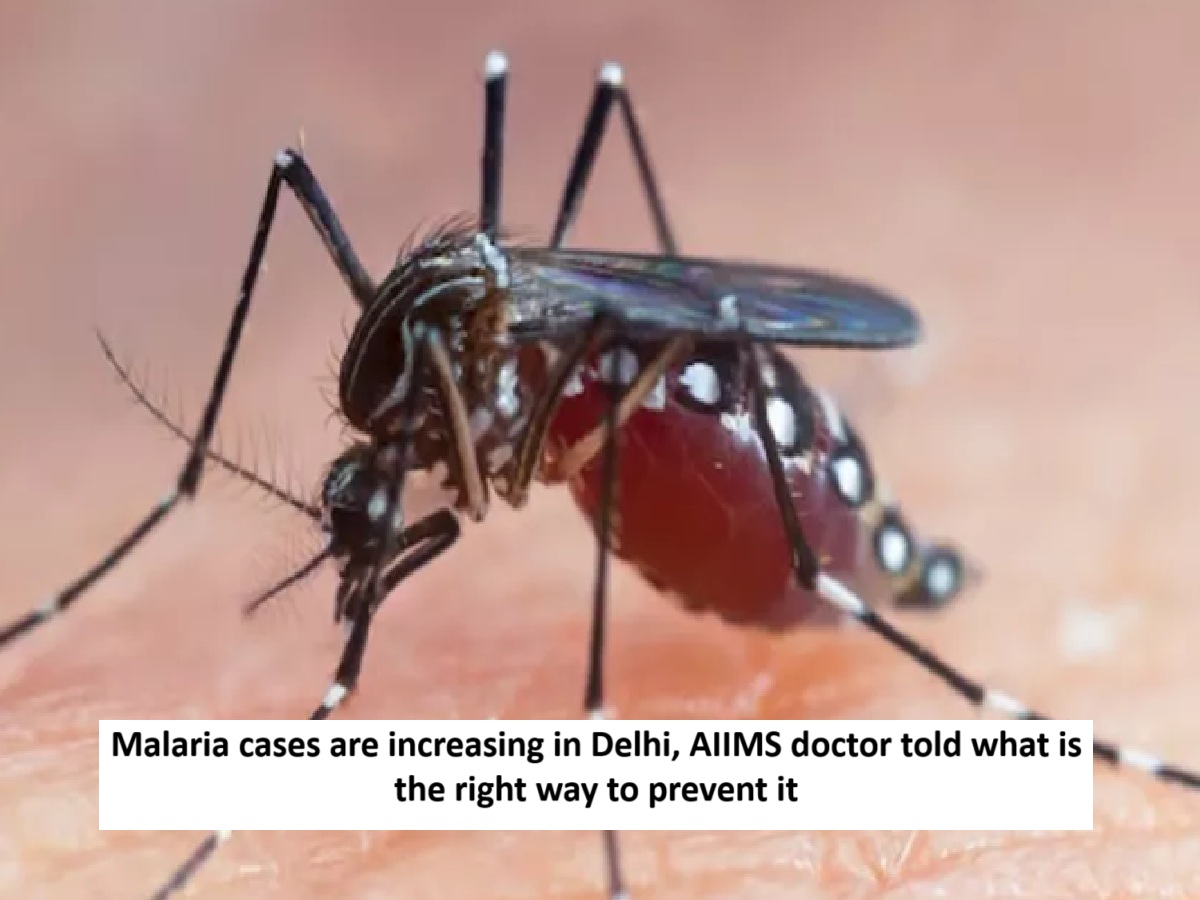
News Topical, Digital Desk : In recent times, cases of malaria infection are being seen more in Delhi and surrounding areas. Waterlogging in metropolitan areas increases the risk of diseases caused by mosquitoes.
Cities are dirtier than rural areas. The spread of malaria mosquitoes is increasing, especially due to the growing spread of slum areas. However, due to the growing awareness about cleanliness and anti-malarial drugs in the last few decades, the mortality rate due to malaria infection has decreased significantly.
Nevertheless, the mortality rate due to malaria is very high in South Asian countries. Malaria is a life-threatening disease, so it is advisable not to take it lightly and be adequately aware of this infection caused by mosquitoes.
When does it become dangerous?
Malaria infection is caused by parasitic mosquitoes. Remember that it does not spread from one person to another. It becomes more dangerous when people are not careful about preventing mosquito attacks. If its symptoms are mild, then normal treatment can prevent the infection from spreading.
how severe is the fever
Malaria is not like a common fever. People with weak immunity such as the elderly, patients of diabetes or hypertension, children or pregnant women can have serious problems with malaria fever. Children under the age of five and those suffering from HIV are at a higher risk. If children get malaria, there is a risk of meningitis. There is a risk of liver and spleen enlargement in children due to malaria infection.
Similarly, diabetics who take insulin can suffer from hypoglycemia due to malaria. This can cause blood sugar levels to drop too low, which can be a life-threatening condition. This fever can cause serious damage by disturbing the body's fluid balance.
Also, malaria infection during pregnancy can lead to premature delivery or birth of a low-weight baby. To prevent all these problems, one should avoid coming in contact with mosquitoes.
Be prepared to prevent malaria infection
Know the symptoms
Malaria can cause fever, chills, and headache. These symptoms usually occur within 10-15 days of being bitten by an infected mosquito. According to the World Health Organization, people who have previously had malaria may have mild symptoms. Its severe symptoms include-
- Extreme fatigue and lethargy
- confusion or loss of consciousness
- Difficulty breathing
- Dark coloured urine or blood in it
- Jaundice (yellowing of the eyes and skin)
- Abnormal bleeding
- Fever, vomiting and body ache
Important Advice
- Consult a doctor and take relevant medications before travelling to malaria-affected areas.
- Use mosquito repellent chemicals (DEET etc.) after evening.
- If coil and vaporizer are not useful then mosquito net can be used for protection.
- Wear full-sleeved clothes. Keep your body covered.
- Use mesh in skylight.
Do not leave the medicine midway
If you are taking medicine as per the doctor's advice, then complete the course. If you stop taking the medicine after the fever subsides, then there is a risk of re-infection. According to the World Health Organization, the progress made in global malaria control is now at risk due to the increasing resistance to insecticides in Anopheles mosquitoes.
Malaria is usually spread by the bite of infected female Anopheles mosquitoes. It can also be spread through blood transfusions and contaminated needles. P. falciparum is the deadliest malaria parasite and is most prevalent in the African continent.
--Advertisement--

 Share
Share



